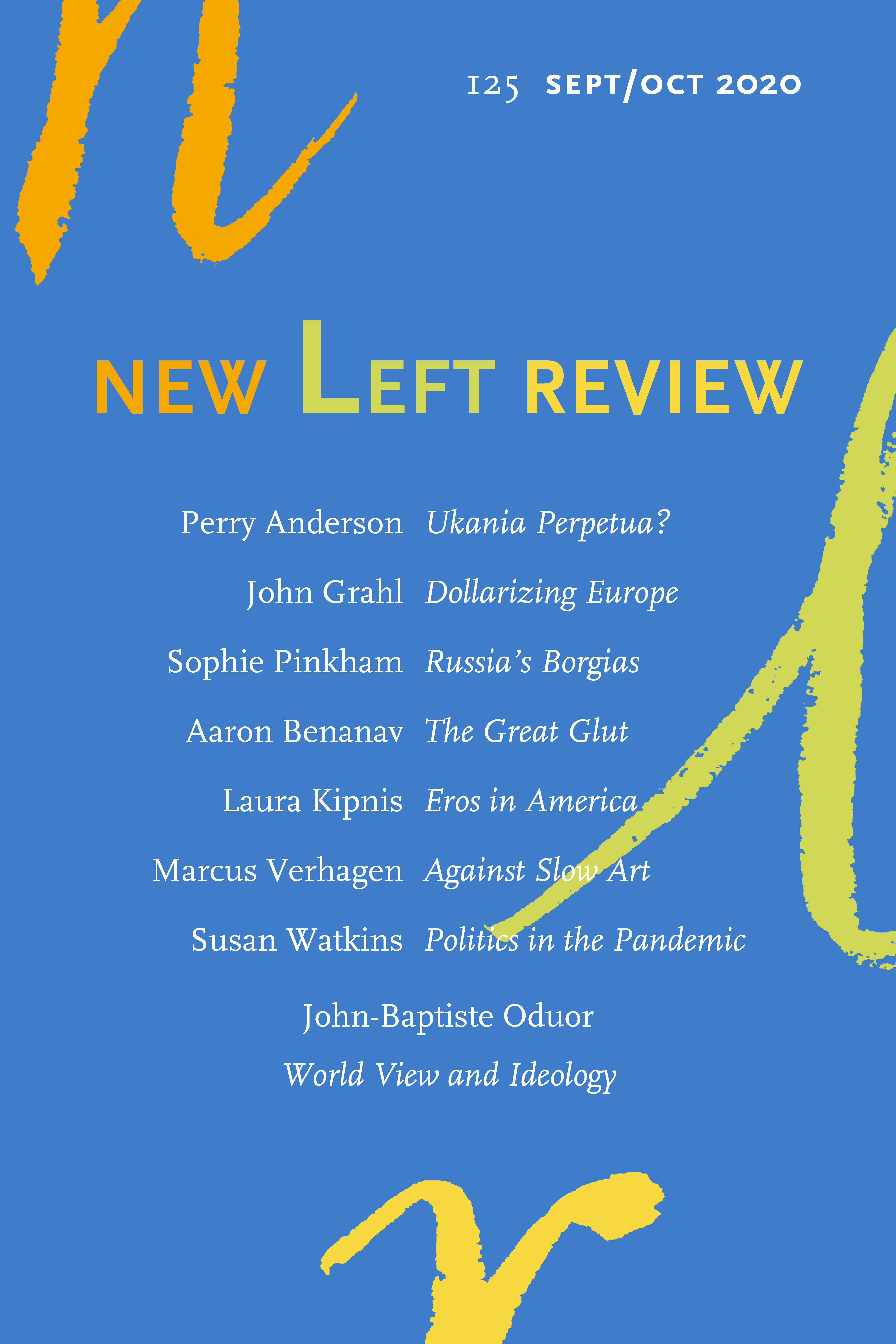As the 2020 US election looms, how to assess the political fall-out of COVID-19 to date, across a world landscape of varying state capacities and social formations? Xi and Modi, Vizcarra and Bolsonaro, Merkel and Trump in comparative perspective.
Is an erosion of the monetary and financial autonomy of the EU underway? John Grahl tracks indices of informal dollarization through the credit markets that may be undermining the coherence of the Eurozone.
Beset by simultaneous crises of class, state and nation, is the UK once again haunted by the spectre of decline? Perry Anderson presents an analysis spanning economy, polity, ideology, territory and diplomacy, testing how far the successive theses offered by NLR can be brought to bear on the present moment.
What is the state of Russian culture today, and what is its standing on the world stage? The multi-media extravaganza of Ilya Khrzhanovsky’s DAU—a controversy-courting product of the largesse of Russia’s oligarchic class—provides an instructive case study.
While galleries and museums maximize footfall with an eye on the bottom line, the artwork is often claimed as a haven from the giddy pace of experience. What are the temporalities of the contemporary art world, and how might they be affected by the coronavirus crisis?
Aaron Benanav on Matthew Klein & Michael Pettis, Trade Wars Are Class Wars. Hobson revived for a provocative new analysis of global inequality, with solutions sought from Keynes.
Laura Kipnis on JoAnn Wypijewski, What We Don’t Talk About When We Talk About #MeToo. What do recent sexual alarms reveal, or occlude, about America’s structural violence and unravelling social fabric?
John-Baptiste Oduor on Raymond Geuss, Who Needs a World View? An iconoclast of Anglophone political philosophy scrutinizes the ineluctable role of the Weltanschauung.
